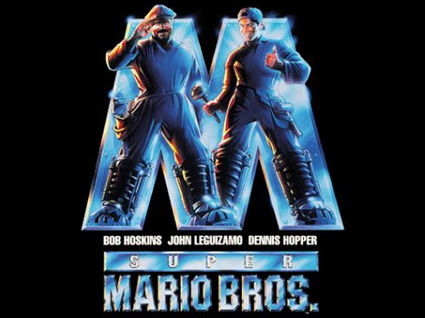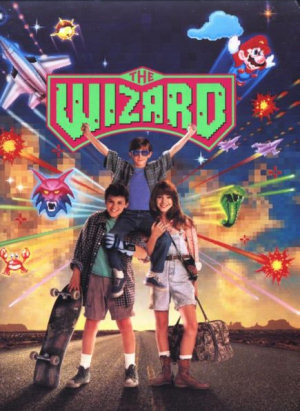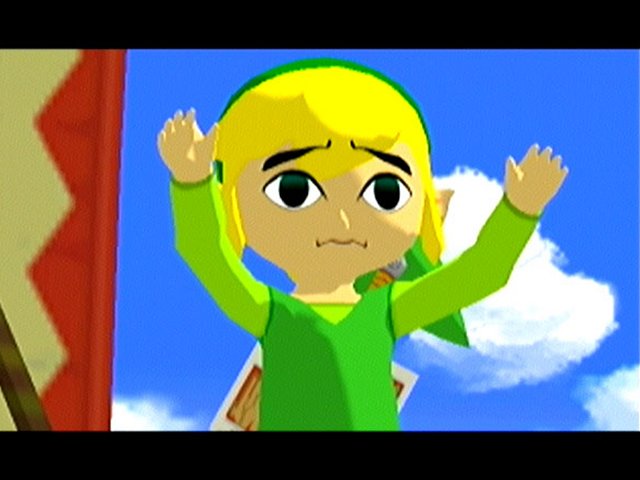This post has not been edited by the GamesBeat staff. Opinions by GamesBeat community writers do not necessarily reflect those of the staff.
Editor's note: Yep, movies based on games suck. But have you ever taken a moment to wonder why? Suriel has some thoughts on just what the heck Hollywood is doing wrong. He also suggests Wind Waker as good inspiration for a movie, in part because of its cartoon-like visuals. Apparently someone has forgotten that we already have proof that live-action Zelda is clearly the way to go. -Aaron
 I like to think that the “game-to-movie” formula thrown around at many movie studios goes something like this: Find a game property that’s popular enough to bring in revenue, see if you can land the project without paying too much money, design a movie that’ll appeal to the fans’ expectations of the video game it’s based on, add some action setpieces, and then maybe see if you have time to tell a story.
I like to think that the “game-to-movie” formula thrown around at many movie studios goes something like this: Find a game property that’s popular enough to bring in revenue, see if you can land the project without paying too much money, design a movie that’ll appeal to the fans’ expectations of the video game it’s based on, add some action setpieces, and then maybe see if you have time to tell a story.
This formula is responsible for movies of varying degrees of commercial success, though from a critic's perspective, they’re typically considered awful-to-middling films. For every Resident Evil — arguably the only video game movie that stands on its own without much need to know the subject material — we get several Uwe Boll movies and countless other generally bad adaptations. Most video game movies either go for broke on the game’s subject matter (Mortal Kombat, Prince of Persia) or try to adapt that same subject matter into something more filmlike (Street Fighter: The Legend of Chun-Li, almost every Uwe Boll movie). But few of them are able to strike a balance that will resonate with fans and interest the general movie-going audience alike.
The recently released Scott Pilgrim, a movie that’s not really based on a game but rather uses video games as its central influence, is seen as the first movie to ably straddle the line between pandering to fans and appealing to everyone else. I make the distinction “fans” and “everyone else” because Scott Pilrgim seems to do distinguish between the same two groups. There are jokes and references for people who’ll spot them and feel like they’re in the in-crowd, and jokes for the rest of the audience. This isn't a bad thing, per se — I did enjoy the movie as a whole — but as I watched, I couldn’t help but feel that the movie could’ve done without so much insular material.

(Left: This is an example of what we had before Scott Pilgrim came along.)
Though it’s likely that the reason Scott Pilgrim works is because its subject material is from a graphic novel rather than a game, studios looking to bleed some extra cash out of fans could certainly learn a few things by studying the way this movie handles its source material. The flashy and over-the-top aesthetic is something that won’t agree with everyone’s taste, but it does serve an important purpose aside from making the movie resemble the comic: With such comical (excuse the pun) imagery floating around, it’s difficult to take the movie too seriously. This means that when something crazy happens, it's easy to suspend your disbelief, and when the movie tries to be serious (something it admittedly doesn’t do too often) it cuts most of those things out, which lets you know it’s time to invest yourself.
That Scott Pilgrim doesn’t take itself too seriously, but still manages at least some emotional weight to its subject matter is perhaps what Hollywood can learn from the most. To take my argument to a logical conclusion, I’ll make my selfish suggestion for a videogame movie: The Legend of Zelda: The Wind Waker.
I think most of you know where I’m going with this. See, when most fans say they want a Zelda movie, they opt for The Ocarina of Time. Byt what they fail to consider is that without its gameplay to back it up, the most seminal entry in the series would look like a Lord of the Rings knockoff.

If the marketing department for this fake movie gets it right, you'll see this face on too much crap in the near future.
An animated Wind Waker film, on the other hand, would capture the style of the series much more capably. Zelda, no matter how it looks, is about child-like wonder and exploration, something that you can easily find a film counterpart in with any of Hayao Miyazaki's stuff. You wouldn’t even have to insert subtle themes into this adaptation: Give us a first act in which Link learns the basics of being a hero, a single dungeon, and a final act where he fights Ganon. Just those three things, and, at base level, I’ll be satisfied.
As I think about this subject matter some more, it occurs to me that perhaps video game adaptations could do with fewer attempts at grabbing at the PG-13 audience, and instead allow us to attempt to capture our childhood through animation. Video games, at their core, are about the wildest kinds of unreality, much like animated movies are. The animated style of Wind Waker would let the director get away with much more suspension of disbelief than he/she could with real actors, as well.
It would be nice if people were more inclined to compare video games to the the works of Pixar, rather than that of Michael Bay. At least we game-to-movie translations have nowhere to go but up — it’s not like we could do much worse.
